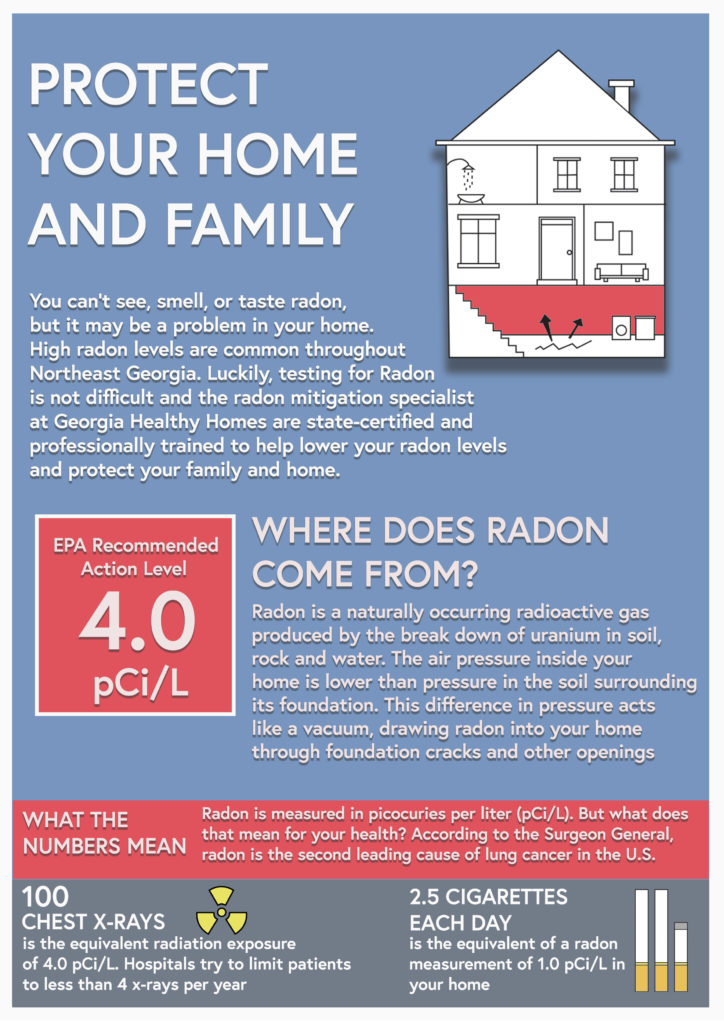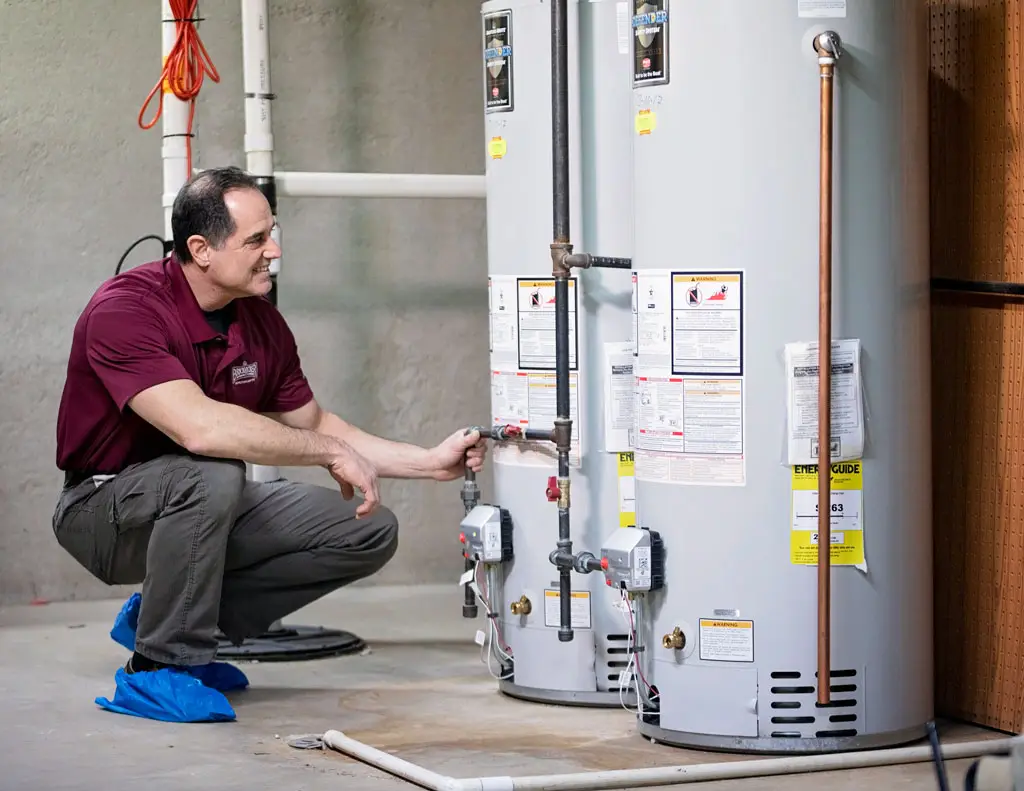National Radon Action Month
Radon testing is the single most requested environmental service that homebuyers add to their home inspection. Given radon’s prominence in the national spotlight as the second leading cause of lung cancer, radon testing is on every potential home buyer’s mind. Radon may be a popular subject, but most homeowners are still in the dark about what it is and the dangers behind it.
Radon forms when uranium breaks down over thousands of years. You can find Uranium in high concentrations of granite rocky soil. This is prevalent here in almost all North Georgia counties. When radon is released it can enter buildings through the foundation and well water, often leading to dangerous exposure levels.

In Georgia, there are no laws or requirements for radon testing during a real estate transaction, but the EPA highly recommends that every real estate transaction require a radon test. Additionally, the EPA also recommends testing every two years or if you change your living patterns by occupying a lower level of your home.
If the radon in your home is over 4.0 pCi/L, the EPA recommends mitigating your home. Radon is dangerous and potentially deadly, but fixing it can be simple and easy. Most radon mitigation companies will over a free at-home consultation to explain and educate the process and how it relates to your home.
After consulting with a mitigation specialist, they can typically complete your installation within a day. From there, your radon levels should drop within the next 48 hours. With your mitigation system in place, you should still continue monitoring your radon levels through periodic testing. This helps to ensure that your system still works efficiently for your home.
